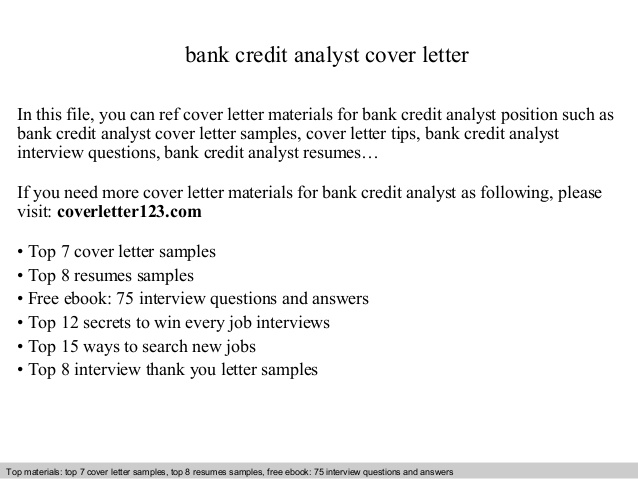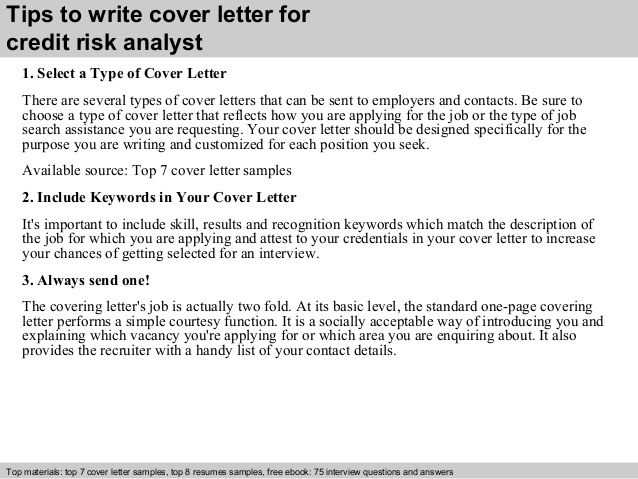Subtotal: 998.00
FTSE 250 definition in the Cambridge English Dictionary

Its formation arose from the need for an index that could show continuously updated intraday changes in the UK stock market, following a shift towards electronic trading in the 1980s. The FTSE 100 affects a good number of people in the U.K, in part https://1investing.in/ because most pension funds are invested in the equity markets. The returns that people walk away in pension funds is correlated to the performance of the FTSE 100, given that it accounts for about 80% of the total equity market in the U.K.
The components of the FTSE 100 would broadly be viewed as ‘large cap’ companies. In 2010, the joint venture with Xinhua Finance was terminated,[3] the index series was renamed into FTSE China Index Series; the Hong Kong incorporated company was renamed to “FTSE China Index Limited”. The figure displayed during news time, mostly in the evening, represents the closing value after the closing of all the counters. The highest ever clocked FTSE 100 index value is 7,903 reached on 22 May 2018. FTSE Russell owns Mergent and Mergent Online, a leading data and reference provider for academic and professional research and study.
Translations of the FTSE 100
The FTSE 100 index, made up of the largest 100 companies trading on the LSE by market cap, is an important indicator of the broader financial market. It is closely followed by investors and is similar in function to the DJIA and S&P 500, and contains some of the largest companies in the world, such as BP and Shell. The best way to do this is to invest in exchange-traded funds that track/invest in the companies of the index. Examples include iShares Core FTSE 100 UCITS, Vanguard FTSE 100 UCITS, and HSBC FTSE 100 UCITS.
Tracking over 800 leading companies on the London Stock Exchange, the FTSE All-Share Index combines the FTSE 100, the FTSE 250 and the FTSE SmallCap index. The index is maintained by the FTSE Group, a subsidiary of the London Stock Exchange Group. FTSE Russell creates indexes used by many investment funds, ETFs, and other financial products as benchmarks or references. The most popular index maintained by FTSE Russell is the FTSE 100, which consists of the 100 most highly capitalized companies listed on the London Stock Exchange. An ETF, or exchange-traded fund, is an investment fund that trades on the stock exchange with ETF investors profiting from any dividends and price gains on the Footsie index.
Wall Street up, FTSE closes in the green as concerns about the Fed’s interest rate cycle resurface – Yahoo! Voices
Wall Street up, FTSE closes in the green as concerns about the Fed’s interest rate cycle resurface.
Posted: Mon, 11 Sep 2023 15:10:27 GMT [source]
Above these sits this week’s high at 4,491 which needs to be overcome for the bulls to be back in control.A drop through 4,430 would put the March-to-September uptrend line at 4,416 on the map. Following a weaker finish on Wall Street, where tech stocks fell after disappointment around the Apple product event and pre-CPI nervousness, the index remains under pressure. As central banks deploy anti-inflation tools, including the Fed’s quantitative tightening campaign, they limit the ability for inflation to erode debt, Goldman added. Asset classes are groups of financial assets, such as shares or bonds, which have been… ‘FTSE’ is short for ‘Financial Times Stock Exchange’, which is derived from the names of two companies that launched the FTSE – ‘Financial Times’ and ‘London Stock Exchange’.
Find out more about the FTSE 100…
The performance of the FTSE 100 also paints a clear picture of current international and economic events given that a good number of companies in the index do business around the world. The index is maintained by the FTSE Group, now a wholly owned subsidiary of the London Stock Exchange, which originated as a joint venture between the Financial Times and the London Stock Exchange. It is calculated in real time and published every second when the market is open. Readjustment of the index constituents (the companies that make up the FTSE 100) happens every quarter, usually, the Wednesday following the first Friday in March, June, September, and December. Any changes to the underlying index constituents and their weighting come from the values of the companies taken at the close of business the night before the review. FTSE Russell is a financial services company owned by the London Stock Exchange Group.
An index is designed to capture a certain segment of the financial market. In the case of the Footsie, that segment is the 100 largest companies, as ranked by market capitalization, on the London Stock Exchange. This is because the index was originally a joint venture between the Financial Times and the London Stock Exchange.
The numbers showed inflation cooled slightly, and arrived before the Federal Reserve meets next week to decide if another interest rate increase is needed to reduce inflation. In one quarter alone, the Treasury Department issued $1 trillion in new T-bills. And with the Fed removed as a key buyer, the Treasury has had to attract money from other corners of the bond market, forcing it to lift rates. Efforts to bring down inflation could collide with high debt loads, a Goldman Sachs warned, highlighting the implications for US debt.
FTSE also researches and publishes many other indices that track a wide range of securities and financial instruments. Since then, its makeup has changed to reflect mergers and acquisitions as well as entering and exiting companies, underscoring its function as a barometer of market activity. All content on this website, including dictionary, thesaurus, literature, geography, and other reference data is for informational purposes only. This information should not be considered complete, up to date, and is not intended to be used in place of a visit, consultation, or advice of a legal, medical, or any other professional. If you want to try it out on CFDs without risking money, open a free demo account on Libertex. If you want to trade FTSE with CFDs, there aren’t drastic differences from traditional trading strategies.
Stocks with higher market caps have more weight in the FTSE 100 and therefore have a bigger effect on the index’s price movements. The market capitalisation of each company is reviewed once a quarter, and the index is adjusted if necessary. 77.77% of retail investor accounts lose money when trading CFDs with this provider. An index, such as the FTSE 100 or Dow Jones, is a selection of financial assets structured to track the price performance of a specific segment of the stock market. Read on to find out more about how indices work, what they are used for, and how you can invest in them. It accounts for around 78% of the market capitalization of the entire London Stock Exchange, and makes headlines whenever it significantly rises or falls.
It embodies the overall performance of the 100 major companies in the UK listed on the London Stock Exchange (LSE). It provides a snapshot of the most highly capitalised ‘blue-chip’ companies, which are trusted and recognised. If you want to invest in its overall performance, and don’t want to buy shares in all 100 components yourself, you would buy a financial product called an index fund. What drives the FTSE’s daily movements is the changing share prices of its components and the weighting of those components.
What is the FTSE 100?
Citigroup shares were rising after the company said it would reorganize the firm into five business lines. The Dow Jones Industrial Average was wobbling in Wednesday afternoon trading as investors analyzed the latest inflation report. In other news, Citigroup shares rose after the company announced steps to reorganize under CEO Jane Fraser. Though the FTSE 100 tracks 100 companies and the S&P 500 tracks 500 companies, both are considered to be the key indexes in their respective countries that serve as a broader market indicator. Indices include the FTSE 250, which includes the next 250 largest companies after the FTSE 100. The FTSE 100 and FTSE 250 make up the FTSE 350, and together with the FTSE SmallCap comprise the FTSE All-Share.

The data sets collected are significant enough to allow for the creation of indexes, methodologies, risk management, compliance, and research across a broad spectrum of global products. The FTSE 100 is made up of the largest 100 companies by market capitalization that trade on the London Stock Exchange. As the FTSE 100 is an index, it is impossible to invest directly in the index.
Index funds turn indices, which have no physical value, into something you can invest in by mirroring their contents. The two main types of index funds are index mutual funds and index ETFs. The free-float adjusted market cap of each constituent is calculated and added together. The index undergoes quarterly reviews, which is a bit like promotion and relegation from the Premier League. A company would need to meet certain criteria to be considered for the FTSE 100. For example, it has to be a public limited company listed on the London Stock Exchange, and must match the index’s minimum liquidity requirements.
Investing in the FTSE
FTSE’s products are used by market participants worldwide for investment analysis, performance measurement, asset allocation and hedging. FTSE also provides many exchanges around the world with their domestic indices. The FTSE 100 definition is the same as the definition of the Financial Times Stock Exchange 100 Index, with the FTSE 100, or Footsie, being shortened names (or slang names) for the stock market index.
Although the consumer price index for August did little to change that, the data kept open the possibility the central bank may still consider another increase later this year. Core prices, which exclude food and energy indexes, rose 0.3% over July and decelerated to a 4.3% annual pace. Treasury yields decline after August CPI inflation mostly met expectations, supporting forecasts that the Fed will keep rates unchanged this month with chances of a hike in November.

Current FTSE 100 companies listed on the stock market index include Admiral Group, Barclays, Burberry, Coca-Cola HBC AG, easyJet, Marks & Spencer, Next plc, Sainsbury’s, Sky plc, Tesco, Vodafone Group and Worldpay. The FTSE 100 is an index made up of shares from the 100 biggest companies advertising elasticity of demand formula by market capitalisation on the London Stock Exchange (LSE). The price of the index is determined by the price movement of these constituent stocks. Clients include both active and passive fund managers, consultants, asset owners, sell-side firms and financial data vendors.
A stock market is used as an umbrella term to refer to all of the stocks that trade in a particular country or region. Such as all of the companies that trade on both the New York Stock Exchange and the Nasdaq. FTSE is short for Financial Times and Stock Exchange, which refers to their joint ownership over the company. The FTSE Group maintains financial indices to measure sections of the overall stock market.
The FTSE 100 returned an average of 8.3% per year from 2010 to 2019 for investors who reinvested their dividends. Without dividend reinvestment, the FTSE 100 returned around 4.3% per annum over this period. Returns depend on factors that impact the individual companies or industries on the index, and ultimately the index price. The FTSE 100 gauges the overall sentiment in the UK market based on the most capitalised companies.
FTSE 100 Listing Process
HSBC is another high profile inclusion in the FTSE 100 having generated significant shareholder value over the years. Other high profile companies listed in the index include mining giant BHP Billiton with a footprint across the globe, mobile telecommunication giant Vodafone, oil giant BP and mining giant Rio Tinto. A merger of the FTSE 100 and FTSE 250 makes up the FTSE 350 index which accounts for about 95% of all companies listed in the U.K. Adding up FTSE 100, FTSE 250 and FTSE Small cap and you end up with FTSE All Share. The FTSE Group, which is a subsidiary of the London Stock Exchange is tasked with the responsibility of maintaining the index. The London Stock exchange runs other indexes in addition to the FTSE 100, such as FTSE 250 and FTSE 350 all of which paint a unique picture of the overall stock market.
- While several of its listings do include companies with homes outside of the U.K., it is most significantly made up of U.K.
- The former dictates whether a company can be a part of the index, while the latter informs its weighting once it has joined.
- Companies listed on the FTSE today represent roughly 81% of the London Stock Exchange’s entire market capitalisation.
- The 100 part of the FTSE 100, meanwhile, represents the index’s make-up.
- The index being free to float essentially means it only takes into account the shares held in public hands and not restricted shares held by company’s insiders or government holdings.
Because of the strategic acquisitions made by FTSE Russell, the company offers many different products and services. It creates indexes and performs research and analysis for financial professionals, firms, investors, and academics. The UK blue chip index is seen slipping back towards the 55-day simple moving average (SMA) at 7,476. Below it, the breached July-to-September downtrend line at 7,468, because of inverse polarity, might also act as support. While this and last week’s highs at 7,524 to 7,551 cap, the index is expected to range trade with a slight downward bias.
When you choose to trade cash (spot) indices, you deal at the current price of the underlying market. Cash indices have tighter spreads, but open positions are subject to overnight funding charges. Individual FTSE 100 stocks yielded returns of 3238% between 2010 and 2019 (as of 30 August 2019). You can use our Hindsight Investments tool to see how much you could have made by investing in individual FTSE 100 shares. Other UK indices include the FTSE 250, FTSE 350, FTSE SmallCap and FTSE All-Share.


